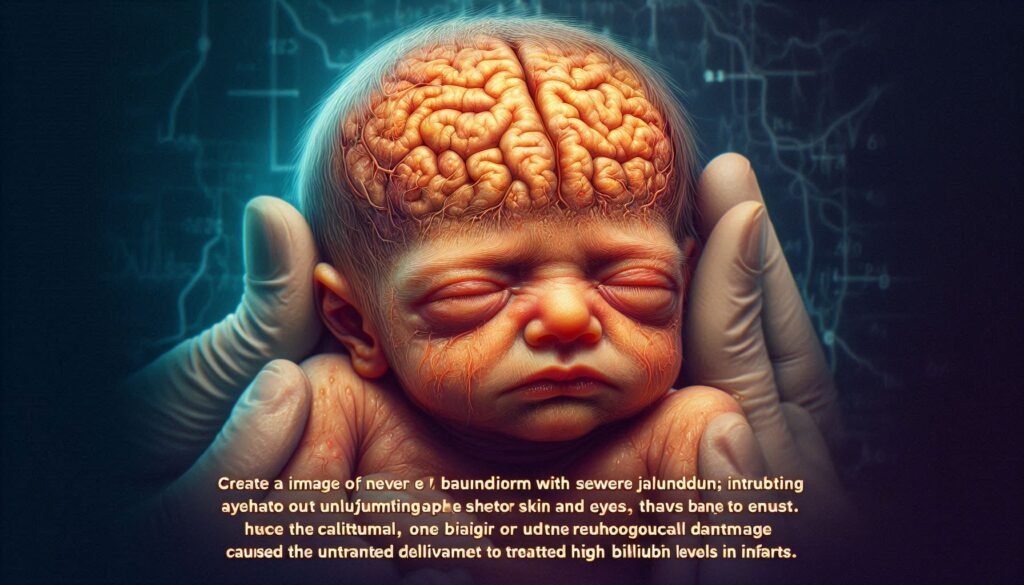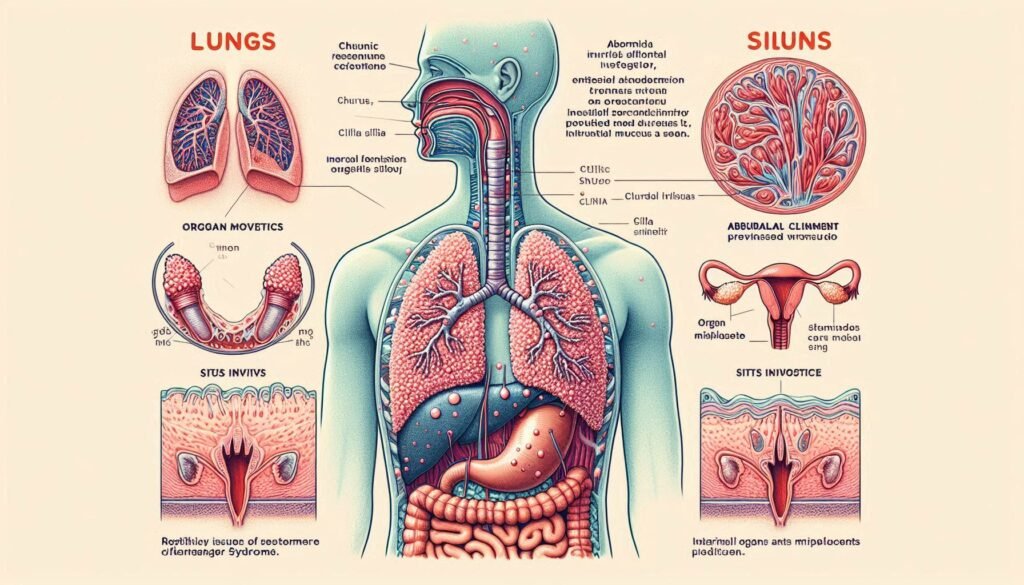Klinefelter Syndrome is a genetic condition that affects many individuals, yet it remains relatively unknown to the general public. Characterized by an extra X chromosome in males, this chromosomal variation can lead to a myriad of physical, cognitive, and emotional challenges. Understanding Klinefelter Syndrome not only sheds light on its implications but also helps demystify the experiences of those living with it.
As we delve into various aspects of this syndrome—from its genetic basis to treatment options—it’s crucial to recognize how these factors intertwine with daily life. Whether you are seeking information for yourself or someone you care about, this guide will provide valuable insights into navigating the complexities of Klinefelter Syndrome and fostering a supportive environment for affected individuals. Let’s explore what makes Klinefelter Syndrome unique and understand its impact more deeply.

Genetic Basis of Klinefelter Syndrome
Klinefelter Syndrome arises from a chromosomal anomaly, specifically the presence of an extra X chromosome in males. This condition typically presents as an XXY configuration instead of the usual XY.
This genetic variation occurs during cell division, leading to sperm or egg cells carrying an additional chromosome. The exact cause remains largely unknown; however, advanced maternal age is recognized as a risk factor for this occurrence.
“How Does Holt-Oram Syndrome Impact Heart Development?”
The extra X chromosome can disrupt normal hormonal development and physical characteristics associated with male puberty. It impacts testicular function and testosterone production significantly.
Interestingly, Klinefelter Syndrome manifests with varying severity among individuals. Some may experience mild symptoms while others face more pronounced effects on their health and development.
Understanding these genetic mechanisms helps inform effective treatment strategies tailored to individual needs. Knowledge about the underlying genetics fosters greater awareness within families and communities affected by Klinefelter Syndrome.
Prevalence and Demographic Distribution
Klinefelter Syndrome is one of the most common chromosomal conditions affecting males. Its prevalence is estimated to be about 1 in 600 live male births. This genetic variation often goes undiagnosed, leading to underreported cases.
Demographic distribution varies across different populations and ethnic groups. Studies indicate that Klinefelter Syndrome occurs consistently worldwide, though some research suggests slight variations in frequency among different ethnicities.
“What Causes Hunter Syndrome? Enzyme Deficiency Guide”
Age at diagnosis can also differ significantly. Many individuals remain unaware of their condition until adolescence or adulthood when symptoms become more pronounced.
Healthcare access plays a crucial role in identifying and supporting those affected by Klinefelter Syndrome. Regions with comprehensive healthcare systems tend to have higher rates of diagnosis, enhancing awareness and support for patients and families alike.
Physical Characteristics and Development
Individuals with Klinefelter Syndrome often exhibit distinct physical characteristics. These can include taller-than-average height and longer limbs compared to peers. Many may have a more rounded body shape, particularly around the hips.
Another common feature is gynecomastia, which refers to enlarged breast tissue in males. This condition occurs due to hormonal imbalances typical of Klinefelter Syndrome.
“Why Is HELLP Syndrome Dangerous During Pregnancy?”
Facial hair growth can be sparse or uneven, while body hair might also be less abundant. Some individuals may experience delayed puberty or incomplete development of secondary sexual characteristics.
Furthermore, small testicular size and low testosterone levels are frequent findings. These variations impact not only physical appearance but also overall health and self-esteem during key developmental stages. Understanding these traits helps in providing appropriate support throughout life’s journey for those affected by this chromosomal variation.
Hormonal Imbalances and Their Effects
Klinefelter Syndrome is often characterized by hormonal imbalances due to the presence of an extra X chromosome. This genetic variation typically leads to lower levels of testosterone in affected individuals.
Low testosterone can result in various physical and emotional challenges. Common symptoms include reduced muscle mass, fatigue, and increased body fat distribution, particularly around the hips.
“How Does Hyperostosis Syndrome Affect Bone Growth?”
Additionally, hormonal fluctuations may contribute to mood changes or depression. These emotional effects can significantly impact daily life and self-esteem.
Moreover, delayed puberty is frequently observed in those with Klinefelter Syndrome. Individuals might experience slower development of secondary sexual characteristics such as facial hair growth or voice deepening.
Understanding these hormonal impacts allows for targeted treatment approaches that enhance quality of life for those living with Klinefelter Syndrome. Early intervention can lead to better management of symptoms associated with these imbalances.
Cognitive and Learning Differences
Individuals with Klinefelter Syndrome often experience cognitive and learning differences. These variations can manifest in various ways, affecting academic performance and daily functioning.
Many boys with this condition may face challenges in language development. They might have difficulty expressing themselves verbally and understanding complex instructions. This can lead to delays in speech and communication skills.
“What Are The Signs of Hurler Syndrome in Children?”
Attention issues are also common among those with Klinefelter Syndrome. Some may struggle to focus for extended periods, impacting their ability to engage fully in classroom activities or group projects.
Additionally, social cognition can be affected. Understanding social cues and developing peer relationships may pose difficulties, leading to feelings of isolation at times.
Early intervention is crucial for addressing these challenges. Tailored educational strategies can help improve outcomes, allowing individuals to thrive academically and socially throughout their lives.
Psychological and Behavioral Aspects
Klinefelter Syndrome can significantly influence psychological and behavioral aspects of an individual’s life. Many people with this condition experience challenges related to social interaction. They may find it harder to form friendships or engage in group activities, often feeling isolated.
“How Does Iatrogenic Cushing’s Syndrome Develop?”
Anxiety and depression are also prevalent among those affected. The societal pressures associated with physical differences can lead to low self-esteem and negative body image. These emotional struggles necessitate targeted support.
Behaviorally, individuals might exhibit difficulties in impulse control or have trouble adapting to change. This can affect their academic performance and workplace dynamics.
Therapeutic interventions play a crucial role in managing these psychological challenges. Counseling can provide strategies for coping with anxiety and building social skills. Engaging in supportive communities fosters connection, helping individuals navigate their unique experiences more effectively.
Fertility Issues and Reproductive Health
Klinefelter Syndrome significantly impacts fertility and reproductive health. Males with this condition often have reduced testosterone levels, which can lead to underdeveloped testes. This development affects sperm production.
Many individuals face infertility challenges due to low or absent sperm counts. The majority of men with Klinefelter Syndrome may require assisted reproductive technologies for conception. Options such as intracytoplasmic sperm injection (ICSI) have shown promise in these cases.
“What Causes Idiopathic Hypersomnia Syndrome? Sleep Guide”
Testosterone replacement therapy can improve some aspects of sexual function but does not address the underlying fertility issues directly.
It’s essential for those affected to consult healthcare professionals specializing in reproductive health. Early intervention and personalized treatment plans are critical for managing these concerns effectively.
Understanding the implications on fertility helps guide decisions about family planning and opens avenues for support through counseling and medical advice tailored specifically to their needs.
Diagnosis Methods: Prenatal and Postnatal
Diagnosis of Klinefelter Syndrome can occur both prenatally and postnatally. Prenatal testing often involves screening techniques such as non-invasive prenatal testing (NIPT) or amniocentesis. NIPT analyzes fetal DNA circulating in the mother’s blood, identifying chromosomal abnormalities early in pregnancy.
Amniocentesis offers a more definitive diagnosis through direct sampling of amniotic fluid. This test is usually performed between 15 to 20 weeks gestation and provides accurate information about the fetus’s chromosomal makeup.
Postnatal diagnosis typically occurs when physical symptoms arise during infancy or childhood. Physicians may notice developmental delays, specific physical features, or hormonal imbalances that warrant further investigation.
Blood tests are essential for confirming Klinefelter Syndrome by analyzing chromosome patterns, particularly looking for the presence of an extra X chromosome in males. Early detection allows for timely interventions and support tailored to individual needs.
Klinefelter Syndrome Variants (XXXY, XXXXY)
Klinefelter Syndrome primarily involves the presence of an extra X chromosome, leading to a 47,XXY karyotype. However, there are variants such as 48,XXXY and 49,XXXXY.
These additional chromosomes can result in more pronounced symptoms and complications. Individuals with XXXY may experience greater cognitive challenges compared to those with the classic XXY variant. Increased developmental delays are common as well.
The rarity of these subtypes makes them less studied but highlights diverse presentations within Klinefelter Syndrome. Symptoms often vary significantly among individuals.
Healthcare providers must consider these variations for tailored treatment approaches. Awareness can lead to better management strategies that address each individual’s unique needs effectively.
Treatment Options: Hormone Replacement Therapy
Hormone Replacement Therapy (HRT) is a vital treatment option for individuals with Klinefelter Syndrome. This therapy primarily addresses testosterone deficiency, which is common among those affected by this chromosomal variation.
Testosterone plays a crucial role in various bodily functions. HRT can help improve energy levels, muscle mass, and mood stability. Additionally, it enhances sexual health and overall quality of life.
Treatment usually begins during adolescence or early adulthood. Regular monitoring ensures that hormone levels remain balanced and side effects are minimized.
Different forms of HRT are available, including injections, patches, gels, and pellets. The choice often depends on individual preferences and medical guidance.
While the benefits are significant, it’s essential to discuss potential risks with healthcare providers before starting therapy. Personalized care allows for the best outcomes tailored to each individual’s needs.
Management of Gynecomastia
Gynecomastia, characterized by enlarged breast tissue in males, is a common concern for those with Klinefelter Syndrome. This condition results from hormonal imbalances where estrogen levels are higher relative to testosterone.
Management often begins with lifestyle modifications. Weight management and regular exercise can help reduce breast size. These changes may also enhance overall health and well-being.
For persistent cases, medical intervention might be necessary. Hormone therapy can balance estrogen and testosterone levels effectively. This approach helps alleviate symptoms and improve self-esteem.
Surgical options are available for individuals seeking immediate results or who experience significant discomfort. Procedures like liposuction or mastectomy remove excess tissue.
Regular follow-ups with healthcare providers ensure that treatment remains effective and any new issues are addressed promptly. Support groups can also provide emotional support during the management journey, fostering connection among those facing similar challenges.
Osteoporosis Prevention and Treatment
Osteoporosis is a significant concern for individuals with Klinefelter Syndrome due to lower testosterone levels. This hormonal imbalance can lead to decreased bone density, increasing fracture risk.
Prevention begins with lifestyle choices. A diet rich in calcium and vitamin D is crucial for maintaining strong bones. Foods such as dairy products, leafy greens, and fortified cereals should be staples in the diet.
Regular weight-bearing exercise also plays a vital role. Activities like walking, jogging, or resistance training help stimulate bone growth and strengthen muscles.
For treatment options, healthcare providers may recommend medications that promote bone density. Bisphosphonates are commonly prescribed for those diagnosed with osteoporosis.
Additionally, monitoring bone health through regular screenings can aid early detection of any issues. By addressing these factors proactively, individuals can significantly reduce their risk of osteoporosis-related complications associated with Klinefelter Syndrome.
Cardiovascular Health Considerations
Individuals with Klinefelter Syndrome are at an increased risk for cardiovascular issues. This heightened vulnerability can be attributed to hormonal imbalances, particularly low testosterone levels. These imbalances may contribute to metabolic syndrome, a cluster of conditions that elevate the risk of heart disease.
Regular monitoring of blood pressure and cholesterol levels is essential. Maintaining a balanced diet rich in fruits, vegetables, and whole grains supports cardiovascular health. Physical activity plays a crucial role as well; engaging in regular exercise helps improve circulation and manage weight.
Awareness of symptoms such as chest pain or shortness of breath is vital. Early intervention can lead to better outcomes. Healthcare providers often recommend personalized screening strategies tailored to individual needs, ensuring proactive management of potential risks related to cardiovascular health in those affected by Klinefelter Syndrome.
Speech and Language Development
Individuals with Klinefelter Syndrome often face challenges in speech and language development. These difficulties can stem from a combination of factors, including cognitive variances and hormonal influences.
Language delays are common among children diagnosed with this condition. Many may struggle with expressive language skills, which can affect their ability to communicate effectively. This could lead to frustration for both the child and caregivers.
Early intervention is crucial. Speech therapy tailored to individual needs can significantly enhance communication abilities. Therapists focus on improving articulation, vocabulary enhancement, and conversational skills.
Social interactions play a vital role in language learning as well. Encouraging participation in group activities helps these individuals practice their speech in real-life situations.
It’s also essential to consider emotional support during this developmental stage. Children need encouragement, understanding, and patience while navigating their unique challenges related to speech and language growth.
Educational Strategies and Support
Educational strategies for individuals with Klinefelter Syndrome should be tailored to each person’s unique needs. Early intervention programs can significantly improve outcomes. These initiatives often focus on language and communication skills, which may require additional support.
Teachers can implement individualized education plans (IEPs) that outline specific goals and accommodations. This ensures a supportive learning environment where students feel understood and valued.
Utilizing visual aids and hands-on activities can enhance comprehension. Many children with Klinefelter Syndrome benefit from structured routines, as they provide stability in the classroom setting.
Peer interactions are crucial too. Encouraging collaborative projects helps build social skills while promoting inclusivity within the classroom community.
Parents play an essential role in advocating for their child’s educational needs. Open communication between home and school fosters a holistic approach to learning, ensuring that both emotional and academic requirements are met effectively.
Psychosocial Interventions and Counseling
Psychosocial interventions play a vital role in supporting individuals with Klinefelter Syndrome. These strategies focus on enhancing emotional well-being and social skills.
Counseling can provide a safe space for individuals to express their feelings. It helps address anxiety, depression, or low self-esteem that may arise from the challenges of living with this condition.
Group therapy sessions also offer valuable support. They create opportunities for sharing experiences and building connections with others facing similar hurdles.
Additionally, family counseling can be beneficial. It educates families about Klinefelter Syndrome, fostering understanding and improving communication within the household.
Tailoring these interventions to each individual’s needs ensures effectiveness. By promoting resilience and coping strategies, psychosocial support empowers those affected by Klinefelter Syndrome to lead fulfilling lives.
Adult Life with Klinefelter Syndrome
Living as an adult with Klinefelter Syndrome presents unique challenges and strengths. Many individuals navigate their careers successfully, often excelling in fields that utilize analytical skills or creativity.
Social interactions can sometimes feel daunting. However, those who seek support from peers and professionals often build strong relationships. Awareness of the syndrome helps foster understanding among friends and colleagues.
Health management is crucial. Regular check-ups for hormonal therapy, bone density tests, and cardiovascular health assessments are essential to maintain overall well-being.
Additionally, pursuing hobbies can greatly enhance life satisfaction. Engaging in activities like sports or arts provides therapeutic outlets for self-expression and social engagement.
Education also plays a vital role. Lifelong learning opportunities can empower adults with Klinefelter Syndrome to develop new skills while boosting confidence in various settings. Embracing one’s identity becomes a cornerstone of thriving in adulthood despite any obstacles faced along the way.
Genetic Counseling for Families
Genetic counseling plays a vital role for families affected by Klinefelter Syndrome. It provides essential information about the condition, including its genetic basis and implications for family planning.
Counselors can help families understand how the extra X chromosome impacts development and health. They also discuss inheritance patterns and risks for future pregnancies.
Parents often have questions about their child’s growth, learning challenges, or social interactions. A counselor can address these concerns with tailored advice and resources.
Support is not just clinical; it’s emotional too. Counseling sessions offer a safe space for expressing fears or anxieties regarding diagnosis and treatment options.
For many families, connecting with support groups through genetic counseling fosters community ties. This shared experience helps navigate the complexities of Klinefelter Syndrome together, ensuring no one feels isolated in their journey.
Latest Research and Clinical Trials
Recent advancements in the understanding of Klinefelter Syndrome (KS) have opened new avenues for research and clinical trials. Scientists are exploring how genetic factors influence the expression and severity of symptoms associated with this chromosomal variation. Innovative studies are focusing on early interventions, which may help mitigate developmental challenges.
Researchers are also investigating potential links between KS and other medical conditions, such as autoimmune diseases. This could lead to proactive strategies for managing health risks associated with Klinefelter Syndrome.
Clinical trials examining hormone replacement therapy continue to show promise in improving quality of life for individuals with KS. These trials aim to fine-tune treatment protocols that can benefit hormonal balance while addressing specific symptoms like gynecomastia or osteoporosis.
Advancements in genetics offer exciting possibilities, including gene therapies that could directly target chromosomal abnormalities. As our knowledge grows, so does the hope for more effective treatments tailored specifically to individual needs.
Studies focused on cognitive development emphasize personalized educational strategies designed to support learning differences often seen in those affected by Klinefelter Syndrome.
The landscape of research is vibrant and rapidly evolving. With ongoing collaboration among researchers, healthcare providers, and families affected by KS, there is a brighter future ahead filled with increased awareness and improved management options for those living with this condition.


